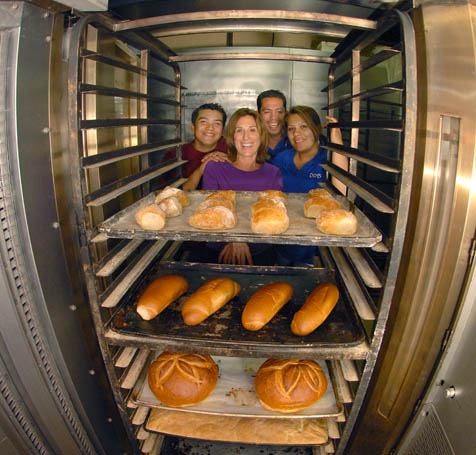Will Trans Fat Ban Affect Santa Barbara Businesses?
Restaurant Owners React to the State's 2010 Ban on Use of Trans Fat-Laden Oils

California restaurants face fundamental changes in the next couple years when it comes to fat – trans fats to be specific. The negative health affects of trans fats have become common knowledge, though until recently, the decision to avoid these artery-clogging heart disease inducers was left up to consumers. That all changed on Friday, July 25, however, when Governor Arnold Schwarzenegger signed a bill into law that will ban the use of trans fats in California’s restaurants beginning January 2010 and in bakeries and donut shops the following year.
Trans fats are most commonly consumed in the form of partially hydrogenated oils that are used to give products a longer shelf life and higher melting point, which comes in handy for baked and fried foods. These qualities benefit the producers of food, but when it comes to consumers, trans fats spell nothing but heart trouble. By raising the levels of “bad” (LDL) cholesterol and lowering the “good” (HDL), trans fats significantly increase the risk of coronary heart disease.
The new law, proposed by Assemblyman Tony Mendoza is good news for California’s diners, but is a potential problem for the restaurants and bakeries themselves. Apart from being easier to use in recipes and being longer lasting, partially hydrogenated oils containing trans fats are also generally cheaper than the healthier alternatives. Laurie Zalk, owner of Our Daily Bread on Santa Barbara Street, said that this law means “restaurants need to spend more money on purchasing food.” But the new law is not going to affect Zalk’s business since she uses “all fine ingredients.” But Zalk does believe, “I think it’s going to be major for chains.”
When first asked about the new law, Zalk replied, “It’s not a surprise.” This specific bit of legislation been in the works for a while, but similar health-related bans have been put into effect before. Zalk remembered when Our Daily Bread first opened in 1981 during a time when “[food producers] were still using bromides in flour.” The unhealthy bromides were used in the flour bleaching process, according to Zalk, and a ban similar to the one banning trans fats made them illegal in California around the time of her bakery’s opening.
Brent Reichard, co-owner of The Habit restaurants in Santa Barbara and chairman of the chain, said that his restaurants changed over to non-hydrogenated oils for frying about a year-and-a-half ago. “It was just something we wanted to do,” said Reichard. Though there were only three items on The Habit’s menu that were prepared in a fryer (French fries, onion rings, and chicken tenders) and the oils without trans fats were “a little more costly,” Reichard said that using the healthier ingredient is “the right way to do it.”
For restaurants and bakeries that don’t already use the trans fat-free alternatives to hydrogenated oils, Reichard and Zalk suspect that the switch should be relatively simple in terms of food preparation, with the major concern being cost. That’s on the mind of Ratee Ifra, manager of the Eller’s Donuts on State Street. Ifra said that while there are currently more expensive shortening products that are trans fat-free available, Eller’s is hoping that distributors will come out with some other options before 2010 that will perform better in the high temperature fryers and perhaps be more affordable. The Habit’s Reichard even suggests that come 2010, “[hydrogenated oils] shouldn’t be available if they’re not allowed.”
Ultimately, it looks like a fair number of Santa Barbara restaurants and bakeries were already health conscious and ahead of the curve when it comes to getting rid of trans fats. But as far as consumers go, Zalk explained, “People are going to be healthier whether they like it or not.”



